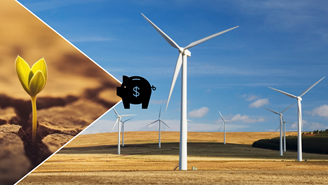This blog originally appeared on GES International’s website and has been republished following Sustainaltyics’ acquisition of the company on 9 January 2019. See the press release for more information.
Elections can be game-changers for companies and investors. An election and a new government can change the confidence that markets have in economies and either stimulate or hamper investments and belief in the future. South Africa is having one of these game-changing elections – hopefully – as the ruling party since the Mandela-elections in 1994, the ANC, has removed their own president (Zuma) after nine years of office and put in place a new presidential candidate for the elections set to take place in early 2019. The former Deputy President Ramaphosa now has about a year at the helm of the country to prove that he is worth electing to a full five-year term and continue the ANC’s hegemony of South African politics.
South Africa finds itself in a very difficult situation after nine years of extremely corrupt and incompetent leadership by President Zuma. Economic growth is low and unemployment is high, causing social tensions in a society that continues to be characterised by high wealth inequality. South African companies are suffering from a slow growth in the local economy, heavy bureaucracy, corruption and an extremely inefficient public sector that is often not able to provide basic infrastructure in terms of energy, water, health care and education. These are massive challenges, but the question is if a little less corruption and a more competent leadership can turn things around. Otherwise, the ANC’s track record of winning an absolute majority since 1994 may be in danger. The ANC losing the majority could be good for democracy in South Africa, because the ANC would be forced to collaborate more broadly in the political spectrum, but it could also turn out to be chaotic, because the ANC is not used to collaborating.
Another emerging market in political limbo is Brazil, which is scheduled to have presidential elections no later than October 2018. Since the impeachment of President Rousseff in 2016, the country has been led by interim President Temer, who has managed to stay in power despite a long trail of corruption allegations and massive protests against his economic reforms. The corruption scandal with the state-controlled oil company Petrobras has spread to involve a number of other large Brazilian companies and hundreds of politicians. A CEO from a large meat company admitted under a plea-bargain agreement that his company bribed more than 1,900 Brazilian politicians over the past decade, including President Temer. Ex-president Lula has also been sentenced in a corruption case, which means that he is unlikely to be allowed to run for president in 2018. He was leading the polls.
It is, in general, unclear who will be able to run for the 2018-elections in Brazil, and where Brazilian voters should turn, if they want to vote for a candidate free of corruption. The elections seem quite unpredictable, and it appears that there will be public protests before, during and after they take place. The continuous corruption cases also represent an unknown factor of who might be brought to justice. This will influence Brazilian politics for years to come, but hopefully also set new standards for politicians and companies.
Unpredictability is not a word that you would use to characterise the upcoming Russian elections. Putin has effectively over the years eliminated all political opposition, so the most that the opposition can hope for is to create a bit of noise and perhaps embarrass Putin with a low voter turnout. But Putin will probably overcome this potential embarrassment and continue business-as-usual. He is determined to put himself in the centre, when the world watches the 2018 football World Cup in Russia.




